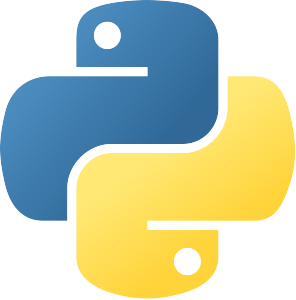
Horas:
Financiación:
Destinatarios:
Prazas
Datas, Horarios e Sesións
Data Inicio
Data Peche
Tipos Formación
Datas e horarios
Número Webinars
Enlace ao curso
Necesidades, prerrequisitos e inf. xeral
Necesidades a cubrir
Prerrequisitos
Carácter
Medios necesarios
Datos persoal Formador e Titor
Persoal formador
Empresa contratada
Titor
Descrición
Python is a high-level interpreted programming language with a philosophy that emphasises the distensibility of its code, is managed by the Python Software Foundation, and is licensed under an open-source licence.
Python has recently experienced an unprecedented boom, dominating the general-purpose programming language scene.
Learning Python is highly recommended today because of its advantages in automating administrative tasks, data analysis, web application development, academic research, teaching and tutoring, collaborating with other professionals and adapting to the latest technologies. Learning Python provides skills and tools to improve efficiency, leverage institutional data, develop academic projects and stay current in a constantly evolving educational environment.
Competencias a desenvolver
- Introduce the different development environments. The Jupyter interactive environment for executing and creating programs.
- To learn the basic elements of the language, control structures, data structures, and syntactic elements specific to Python.
- Introduce some of the most common libraries of the language.
- To carry out practices and simple programming exercises with Python.
Metodoloxía
Delivery of the training activity in virtual classroom mode with qualified personnel specialised in the subject and with extensive experience in the development of IT solutions.
The training sessions will be conducted using videoconferencing software, interspersing theoretical presentations to resolve simple practical cases. The programme of the sessions is the following::
- 1st session, Tuesday, 3 October
- 2nd session, Thursday, 5 October
- 3rd session, Tuesday, 10 October
- 4th session, Thursday, 12 October
- 5th session, Tuesday, 17 October
Activities will also be proposed to the students to be able to monitor the student's achievement of the course objectives. The proposed activities can be questionnaires, exercises, and participation in question forums, among others.
Students have the support of the course teacher to resolve any doubts.
Temario
1. Introduction to Python, basic I/O(2 hours)
- Installation of the working outline
- Display console messages (print)
- Entering text via keyboard (input)
2. Variables and data types (2 hours)
- Declaration of variables
- Data types: integer, float, text, boolean
- Conversions between data types
- Formatting character strings, rounding of digits
- Mathematical operators
- Practical exercises
3. Character strings and abstract data types (4 hours)
- Indexing
- Extraction of substrings
- The str class
- Lists and tuples
- Dictionaries
- Sets
- Practical exercises
4. Controlling program flow (4 hours)
- Comparison operators
- Logical operators
- Conditional structure (if-elif-else)
- Loops (for, while)
- Ranges
- Sequence search and transformation functions: sum, min, max, filter, map
- Pseudo-random number generation
- Comprehension lists
- Practical exercises
5. Functions (4 hours)
- Definition and invocation of functions
- Help methods and documentation
- Recursive functions
- Variable arguments: *args, *kwargs
- Practical exercises
6. File manipulation (2 hours)
- Opening and closing files
- Sequential reading and writing of data to and from files
- Practical exercises
7. Introduction to object-oriented programming (5 hours)
- Definition of classes
- Attributes and methods
- Inheritance
- Polymorphism
- Special methods
- Practical exercises
8. Third-party package (2 hours)
- The Python package index (PyPI)
- Installation of third-party packages
- Exposure to some of the most commonly used packages for data science and application development.



